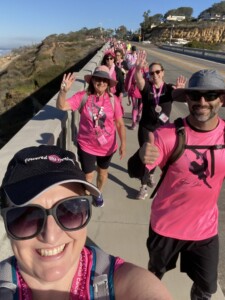
This year, Erin P. experienced the kind of heartbreak most people can’t imagine —losing both of her parents just seven weeks apart. Her father passed away first, following years of health challenges, including cancer. Her mother, Bernadette, a two-time breast cancer survivor, died shortly after.
In the midst of navigating her grief, Erin came across the Susan G. Komen 3-Day® and felt inspired to participate for the first time as a way to honor her mother’s strength and resilience amid the relentlessness of breast cancer.
“My parents were fighters. They really were,” Erin said, tears falling from her eyes. “When I saw something about the 3-Day right after my mom died, I knew I wanted to do it.”
Breast Cancer
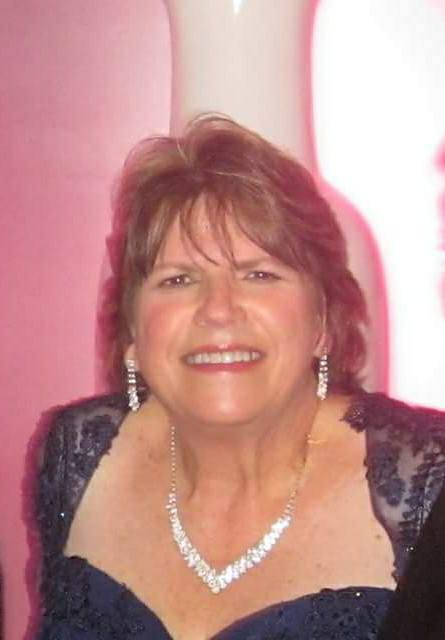
To understand what led Erin to the 3-Day, you have to go back to 2017. That’s when Bernadette was first diagnosed with stage 0 breast cancer. She underwent a lumpectomy, followed by radiation therapy and oral chemotherapy medication.
“After that, the doctors told my mom she was cancer-free, so we marched on with our lives and everything was going so well,” Erin recalled.
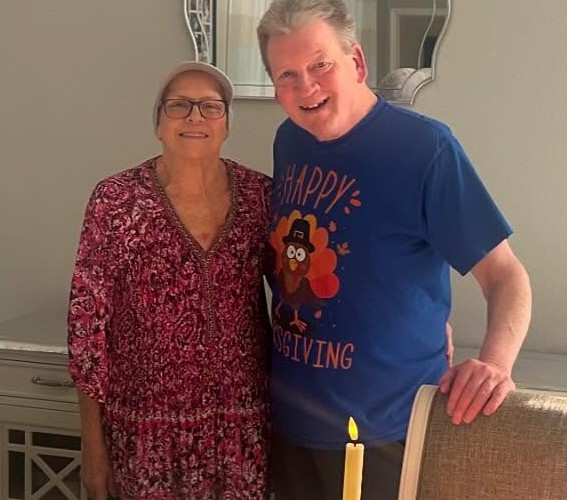
During that time, Erin gave birth to her son, Thomas. He was her parents’ only grandson. But in 2021, Bernadette was diagnosed again, this time with stage 3 triple negative breast cancer. The treatment was grueling. Bernadette had a double mastectomy, more chemotherapy and another bout of radiation therapy which caused a painful wound.
“The burn on her chest from the radiation started off as the size of a quarter, and it kept getting bigger,” Erin explained. “My dad had to do wound care for her, and she later needed a skin graft surgery.”
Despite the physical toll, Erin and her parents moved from New York to Florida to be closer to her sister, who had recently gotten engaged. Erin said for a while, her mom seemed to be doing better. After completing treatment, her scans showed no signs of breast cancer.
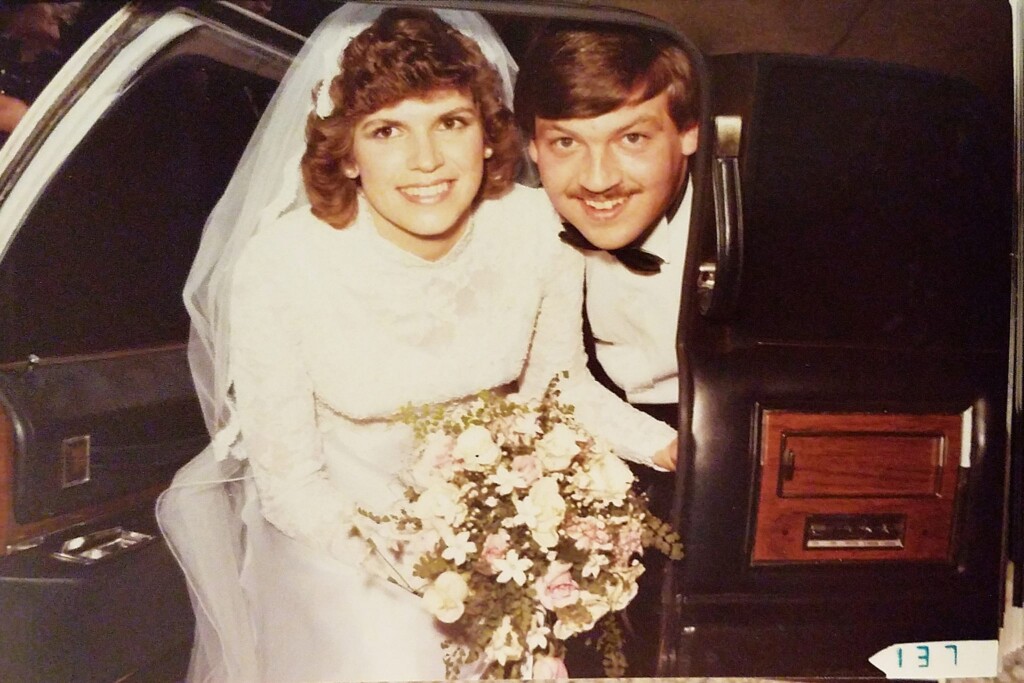 In October 2023, Erin’s parents celebrated their 41st wedding anniversary, a milestone that reflected decades of devotion, love and shared medical challenges.
In October 2023, Erin’s parents celebrated their 41st wedding anniversary, a milestone that reflected decades of devotion, love and shared medical challenges.
But their joy was short-lived. Soon after, Bernadette received more devastating news. Her breast cancer returned and had metastasized to her bones. Despite the diagnosis, Bernadette was able to spend two more holiday seasons with her family, as well as be at her daughter, Tara’s, wedding.
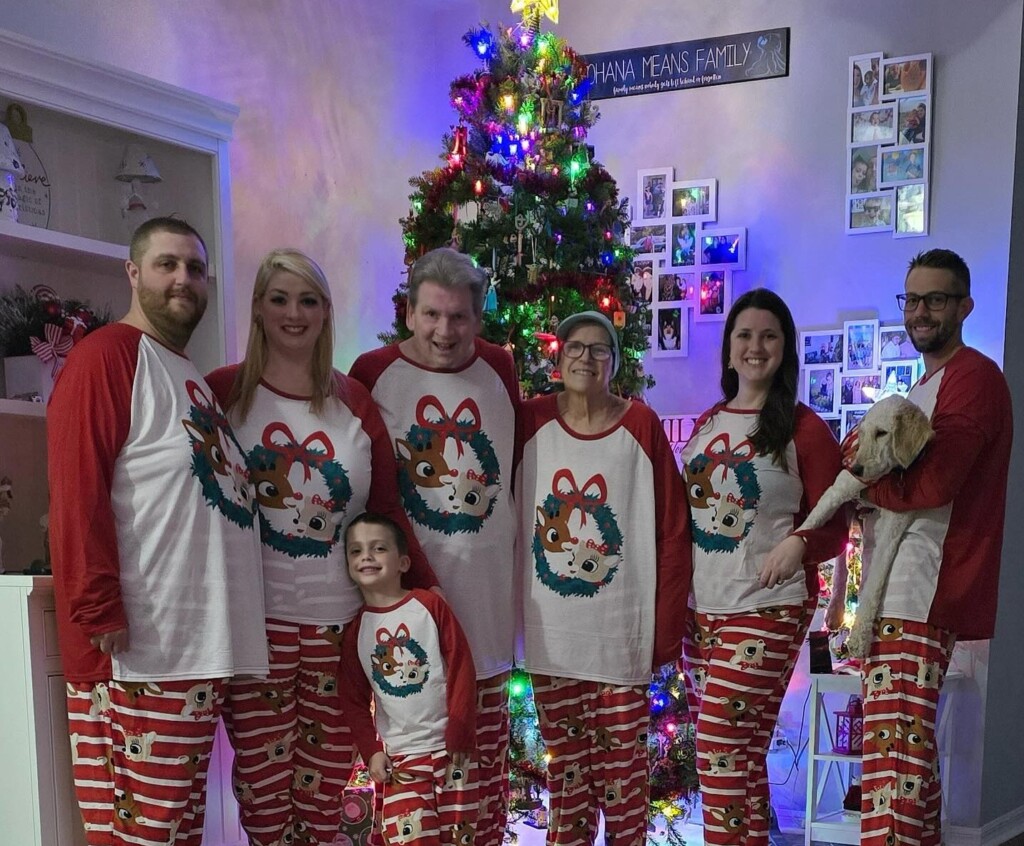 But earlier this year, both Bernadette and her husband’s health declined, and they were hospitalized at separate times. Erin and her sister were there for each of them. In a final, tender moment, Bernadette had the chance to say goodbye to her husband before he passed away. She followed seven weeks later.
But earlier this year, both Bernadette and her husband’s health declined, and they were hospitalized at separate times. Erin and her sister were there for each of them. In a final, tender moment, Bernadette had the chance to say goodbye to her husband before he passed away. She followed seven weeks later.
The 3-Day
The weeks that followed were filled with heavy grief for Erin, but also reflection. She organized a beautiful memorial service where she handed out pink breast cancer awareness ribbons in honor of her mom.
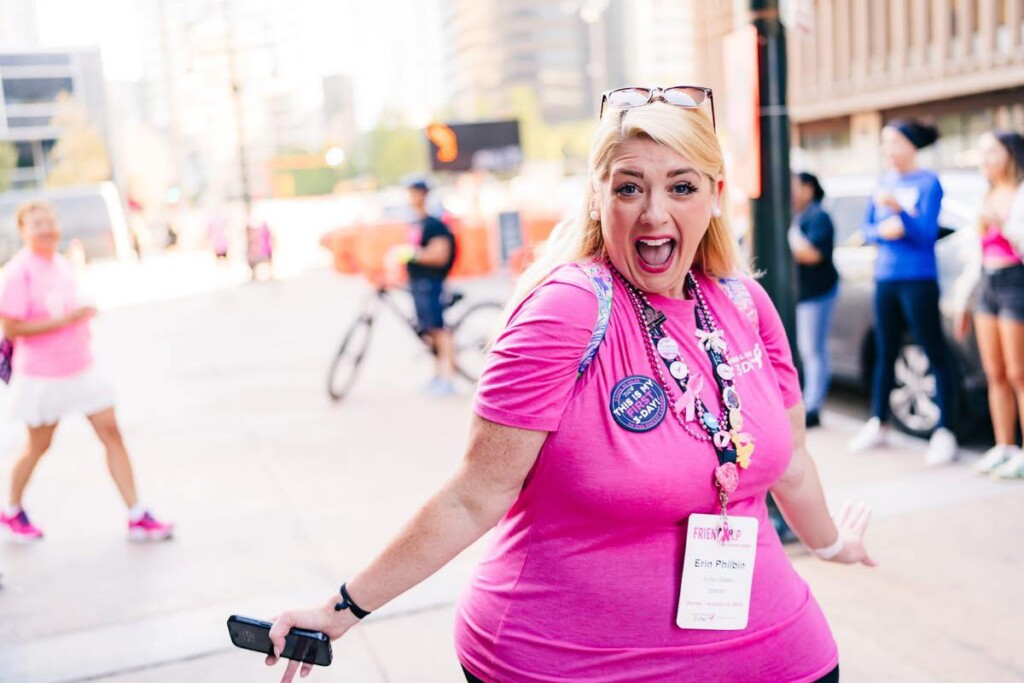
Then a few months later, she boarded a plane from Florida to the Denver 3-Day.
“I went to the 3-Day with minimal expectations, no training. I just wanted to honor my mom, and my dad too,” Erin said. “I took the extra pink ribbons I had from the memorial, and I gave them to the volunteers, crew and walkers and I told them about my mom.”
Despite a foot injury that prevented her from walking the full route, Erin was determined to finish. She walked as much as she could, and when she reached the final stretch, her son and husband were waiting to cheer her on.
“I really wanted to make sure I finished for my mom.,” she said, “I took my son’s hand, and we crossed the finish line together. It was beautiful. I was so emotional thinking about my mom and my dad and everybody who has gone through breast cancer.”
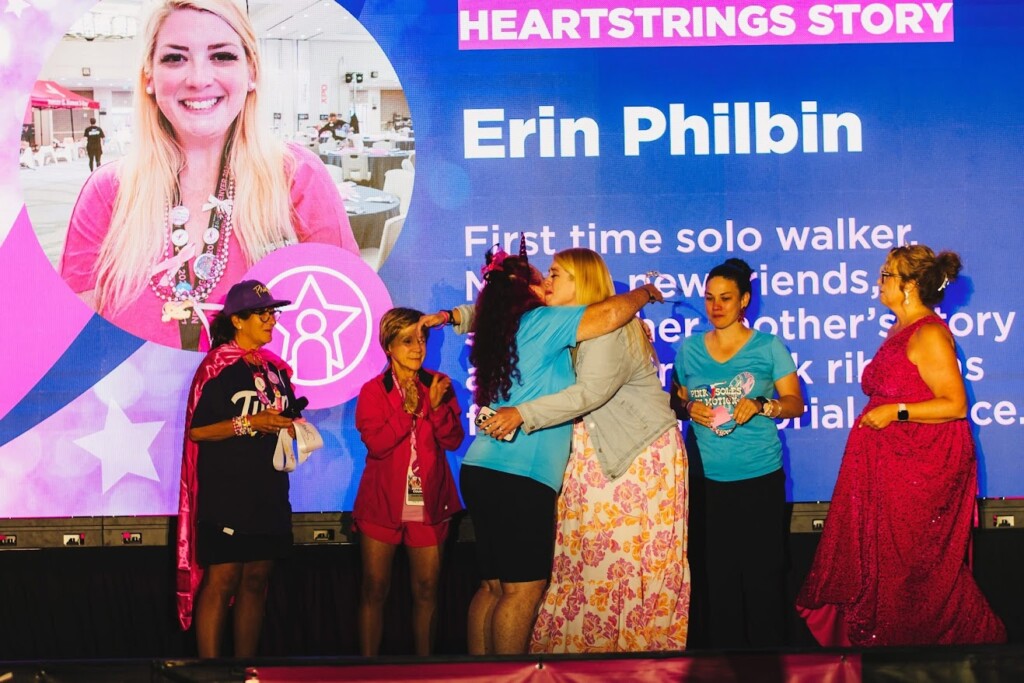
To Erin’s surprise, she was honored with the “Best Tug Your Heartstrings Story” award at the Denver 3-Day Celebration of Champions. She’s already fundraising and preparing to walk again, this time at the Tampa Bay 3-Day in 2027.
“The Pink Bubble was overwhelming in the best way,” Erin said. “I got so many hugs from strangers who are part of this big, beautiful community. I’m just so glad I jumped into the 3-Day when I needed it most.”
Statements and opinions expressed are that of the individual and do not express the views or opinions of Susan G. Komen. This information is being provided for educational purposes only and is not to be construed as medical advice. Persons with breast cancer should consult their health care provider with specific questions or concerns about their treatment.

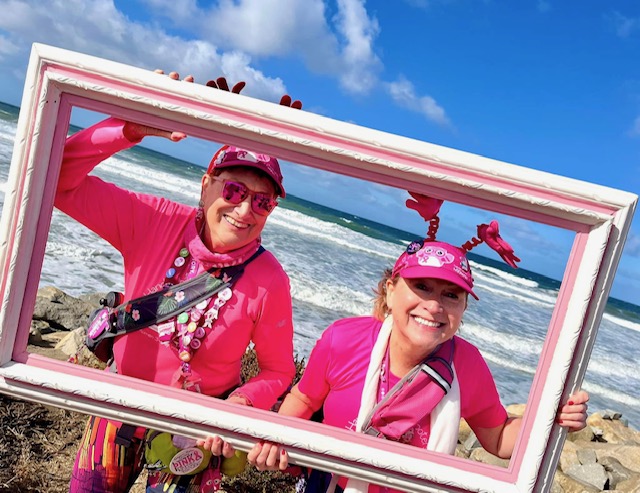
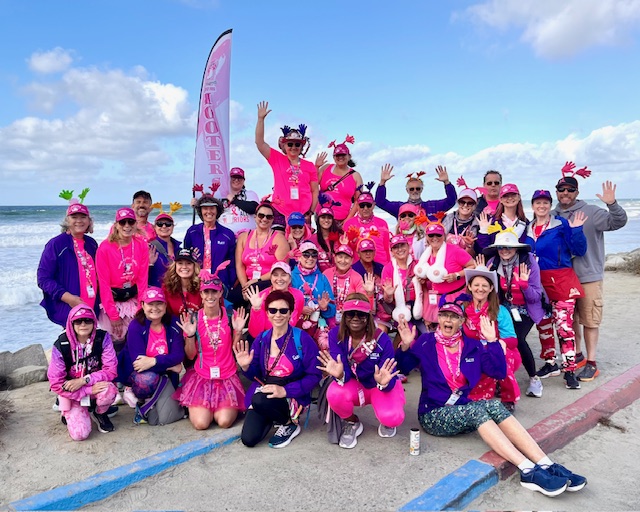
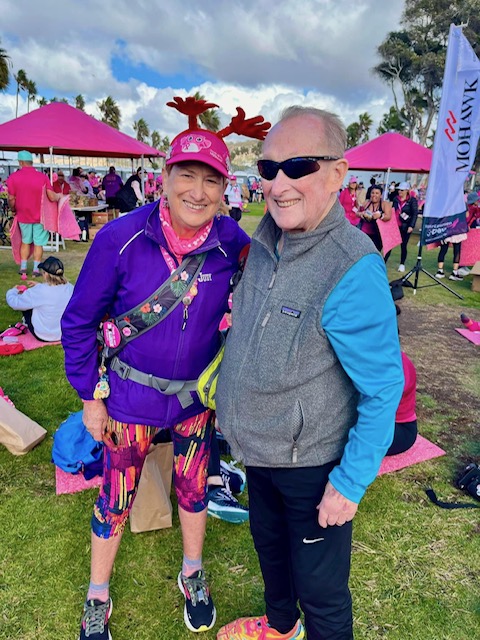 “Many can’t believe I am going to walk again at my age. I tell them I’m healthier now than I was in 2014,” she laughs. “But I do take one sweep van before the San Juan Hill. That stretch is tough.”
“Many can’t believe I am going to walk again at my age. I tell them I’m healthier now than I was in 2014,” she laughs. “But I do take one sweep van before the San Juan Hill. That stretch is tough.”



